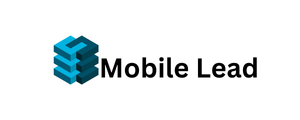For business, the principles of “reciprocity” and “scarcity” are big factors in the persuasion game. Customers are more inclined to appreciate your business, for example, when you give them something personalized or unexpected. It’s that same vein, they tend to want the things that aren’t everywhere, that’s why limited-time offers tend to be a high selling point.
Clients also like to feel confident. Your company can build a lasting relationship by emphasizing your “knowledge” and “authority” in your industry Bulgaria Email Address. Try to give your service a trial period, allowing your future customers to make a small commitment to get started.
What makes us say yes? Researchers have been trying to answer this question for 60 years and there is no question that being persuaded is science. Here are six universal factors that will guide our decisions:
The yes of the clients
1. Reciprocity. This is defined as the obligation to give back what you have received from others. In one study it was found that if a waiter gave a mint at the end of the meal, his tip would increase by three percent and for two mints he would be tipped 14 percent. But if the waiter left a mint, he turned and gave them another while he said “for you especially I give you another mint” the tip would increase 23 percent.
This increase was influenced not only by what was given, but how it was given. The key to using this technique is to be the first to give and make sure it is personalized and unexpected.
2. Scarcity. When British Airways announced that the twice daily London to New York flight would not be available on concord because it was not profitable, the next day sales skyrocketed. It is not enough just to tell people the benefits they will get, you also need to highlight what is unique and what they can lose.
3. Authority. People will follow the experts for their credibility. Physiotherapists, for example, are able to persuade most of their patients to accept their diagnoses with diplomas taped to the wall in their offices. It is important to point out to others what makes you credible and a knowledgeable authority before you attempt to influence them.
4. Consistency. On one street, few people were willing to put a blanket in their front yard to support a safe driving campaign. But on a similar street, more than half the people wanted to do it. Why? Because 10 days ago they had agreed to put a small card in the window of their house to support the campaign. That little card was the initial commitment that led to a 400% increase.
When looking to influence using the principle of consistency, you should look for voluntary, active, and public commitments and have them written down.
5. Sympathy. People prefer to say yes to those who like them. What makes one person like the other? In a series of studies from two business schools, a group of MBA students were told to embrace the idea that “time is money” and to start negotiating right away. In this group, 55 percent of the young people were able to reach an agreement with the people. The second group was told to exchange some information before starting the negotiations and to identify any similarities that they shared with the people. In this group 90 percent of the students were able to have successful results.
6. Consensus. People like to see the actions of others to see their own. Hotels usually put little cards in bathrooms to persuade guests to reuse towels mobile lead. This is done by informing them of the benefits to the environment.
This strategy leads to 30 percent acceptance. What if the cards said that 75 percent of the guests reused the towels? Changing a few words about what other guests have done is the most effective message.
Science is telling us that instead of relying on our own ability to persuade others, we can point to what others are doing.
